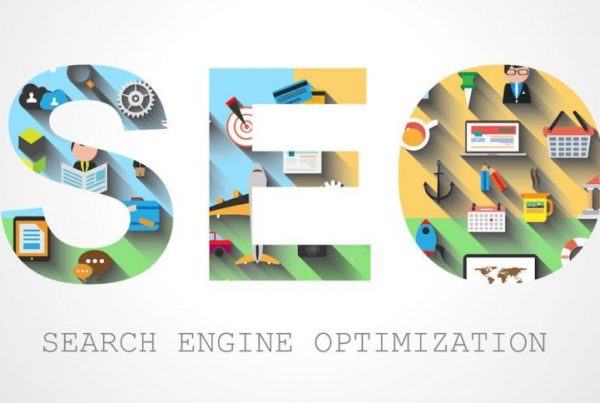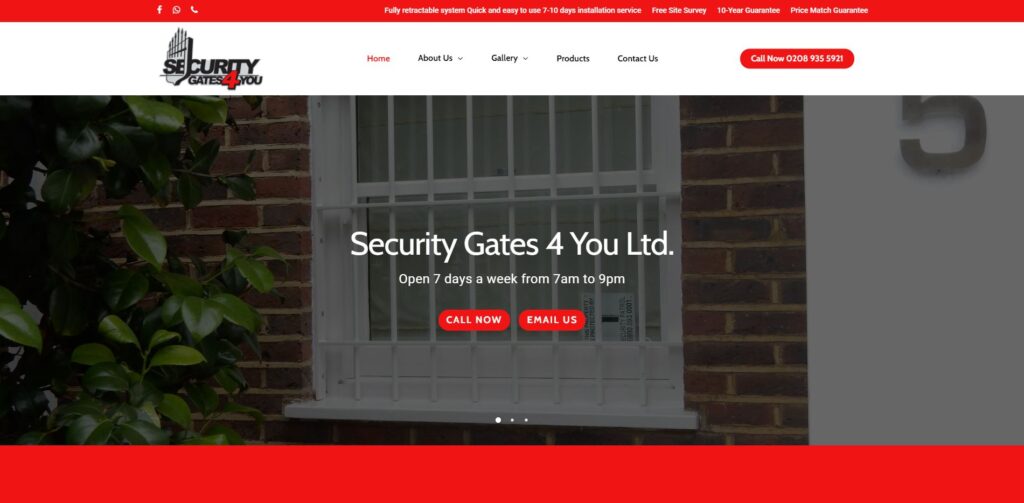Without visitors, a website is worthless. There are a variety of factors, including the content, format, and keywords, that could be the cause of your website’s low visitor count. This article discusses 9 possible causes of your website’s lack of organic traffic. Keep reading to learn more.
1. Are You Targeting The Right Keywords?
Any SEO approach should prioritise the research for the correct keywords. Using keywords will enable search engines to correctly index the content of your website and display it in correct search results.
If you’re focusing on the wrong keywords or do not have the keywords, you won’t rank well, which means your audience will see less of you. As a result, your website will receive less organic traffic.
Other causes for your keywords not working for your website include:
- Using too specific of keywords (niche)
- You work in a field where the targeted keywords are quite competitive.
If your keywords are not functioning as expected, there are a few things to take into account:
- Does your website have a high bounce rate?
- Is organic visibility poor?
- Have you had high impressions but low click-through rates?
By centering content around the wrong keywords, a website may receive low-quality traffic that doesn’t result in leads or sales.
What steps can you take to fix poorly targeted keywords? Utilize a robust research tool, such as Google Keyword Planner, to conduct in-depth keyword research.
Do you worried about your website performance?
Don't worry, we do website audit for you free of cost
Free website auditAim for long-tail keywords with less competition that you can naturally include into your material. The phrase “low competition” is the key in this sentence. If you appropriately advertise your content, low competition keywords will provide you a higher chance to rank well in search results.
Your website will receive visitors from low competition keywords, but not as much as from high competitiveness keywords. By achieving high rankings for several keywords with little opposition, you can contribute to building more people’s trust in your website.
2. Are You Uploading The Right Amount Of Content?
Lack of content on your website may be harming your search engine rankings. Additionally, it implies that you are less attractive to customers than your rivals.
This does not imply that you must produce a tonne of copy. Here, quality over quantity is the keyword. Make sure the material you’re producing is of a good calibre and offers the solutions your users are seeking.
Search engines have sophisticated algorithms that may detect when your content marketing is being is not written properly, spam in quality, or uses repeated keywords.
Take into account the following when conducting research and producing the copy for your website: What stage of the buying process is the user now in? Are they prepared to buy, researching a product, or looking for an answer to a question?
3. Are You Portraying Yourself As An Expert, Authoritative, And Trustworthy?
Google wants your website to be a leader in the field in which you are an expert. In order for Google to rank your website highly, they want you to be the authority in your industry and reliable when it comes to your content.
These three factors essentially assess the calibre of your content:
- Expertise
- Authority
- Trust
We’ll call it E-A-T for short.
Google considers a number of factors when evaluating the content of your website for E-A-T, including:
- Is the site’s structure logical and user-friendly for finding information?
- Are all of the pages navigable?
- A page titled “About Us” is there?
- Are there numerous ways for a consumer to get in touch with you?
- Does your website contain terms of service and a privacy policy?
- Who is the content’s creator? Do they possess subject-matter expertise?
- What is your company’s reputation? Attempt to get positive business reviews.
- Is the website’s content appropriate for the company?
Every webpage must have E-A-T. Within Google’s rules for the quality of content, it has been highly emphasised. Your Google ranks will improve as a result, and your site’s user experience will also be enhanced.
4. Are You Writing Content For Actual People?
Don’t forget to write your copy for humans instead than computer programmes. We risk losing sight of the audience if we place too much emphasis on optimizations.
Consider the following ideas to improve the user attractiveness of your content:
- Use conversational writing.
- Make use of eye-catching images
- Large paragraphs should be broken up into manageable bits for the user.
- When necessary, divide content into headings, bullet points, and numbered lists.
Writing for humans will keep readers interested, increasing the likelihood that they will buy something or come back to your website in the future. They are the ones who will interact with you at the end of the day.
In general, you should audit your content to ensure that it is current, delete any outdated content, such as stories about past events, and repurpose and edit any older articles to bring them up to date. If you’re looking for a website audit, our experts at Explosion Digital can help.
5. Keep An Eye On Your Competition
Consider the markets that your rivals are targeting and write better copy than they do.
Conducting a competitive study is the greatest technique to find these insights. This will afterwards assist you in creating a strong, efficient content strategy that will increase website traffic.
The analysis ought to cover:
- Competitors who are listed for your goal keywords
- Analyzing the content of your competitors (audit)
6. Promote Your Content When Necessary
Having a strategy to market your content is essential if you want to spread the word about the fantastic stuff you have on your website. Otherwise, it’s unlikely that more people will visit your website.
Generally speaking, it is advised to spend 80% of your time promoting your content and 20% developing it.
Promoting where your audience is is crucial. This might appear, among other places, on social media sites like Facebook and Twitter or websites and networks specific to a certain sector.
Find out what appeals to your target audience in this situation.
Email marketing is another avenue for promoting your content that you should put some time and effort into. This segment of your audience has typically engaged with your company before and is therefore more likely to buy from you again. Using growth software, sales and marketing functions may be automated and integrated to give customers the proper attention at each point of their customer journey.
See how our agency can drive massive amounts of traffic to your website
SEO :
Unlock massive amounts of SEO traffic see real results.
Content marketing :
Our team creates epic content that will get shared, get links, and attract traffic
Paid media :
Effective paid strategies with clear ROI.
7. Fix Any Technical Issues
It is important to follow the guidelines and best practices that Google has established for its algorithms. Both Panda and Penguin are significant algorithms (these are the name of the google search engines. They have 100’s of engines to decide where your website ranks).. If you don’t adhere to recommended practises, you run the danger of Google penalising or downgrading your website.
You must stay current with algorithms because they are updated frequently throughout the year.
A decrease in website traffic from one day to the next would let you know whether you are affected by a Penguin or Panda upgrade.
(Note: The Penguin algorithm focuses on links, while Panda focuses on content).
8. Have You Made Your Website Mobile-Friendly?
These days, mobile devices are where the majority of search activity occurs. As a result, you need to make sure that your website is completely optimised for mobile use. Google’s indexing methodology now prioritises mobile devices over desktop, or “mobile first.”
When it comes to mobile, keep the following in mind:
- It should be simple to read web pages without pinching or zooming.
- Link replacement with intuitive button placement
- Make web forms brief, snappy, and simple to fill out on a small screen.
- Make the text more readable by formatting it with headings, bullet points, graphics, and shorter paragraphs.
In short, making sure that your site loads quickly and is mobile-friendly will help it rank better in search results.
9. Your SEO Plan Is Poor
Many websites don’t have any sort of SEO strategy in place. Your website might not be accessible in search engines without SEO work, and if it does, its rating is entirely dependent on chance.
SEO is a huge deal when it comes to organic traffic. In fact, it’s what drives organic traffic the most. So, make sure you’re employing a fool-proof SEO plan that is consistent with your content.
We hope you enjoy reading this blog
If you need our expertise please book a meeting with us.
Conclusion
There you have it. These are 9 possible reasons your website isn’t generating enough organic traffic. If you’re looking for a purely result-based plan that can help increase your traffic and overall ranking, contact us. We can help your business bloom online.












